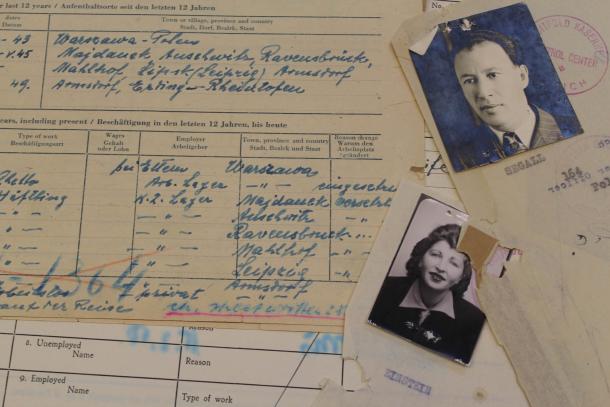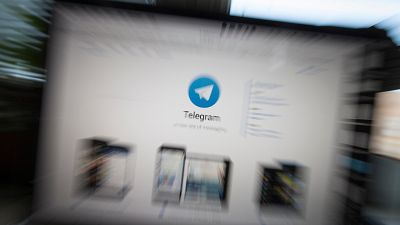Broadcasting Hate
"Holocaust distortion trails world events and shifts in form depending on current affairs, areas of deep public concern and the evolving news agenda.""[Holocaust distortion in 2021 was often linked to anti-lockdown protests, including antisemitic] associations of Jews with disease.""[Telegram social media platform] does not have a policy to take action on Holocaust denial or distortion, creating a safe haven for those who wish to deny or distort the genocide."UNESCO Study
"Platforms like Facebook and Twitter have made misinformation the problem that it is today by promoting sensational posts with their algorithmic feeds.""This is far less relevant on Telegram where people get only the content they explicitly subscribe to.""[Telegram is] a platform for free speech, including that we do not agree with. That said, we must ensure our apps remain accessible on all platforms in order for everyone to peacefully express opinions.""Posts that glorify or encourage violence are explicitly forbidden by Telegram's terms of service and are removed by our moderators through a combination of proactive moderation in public spaces and user reports."Remi Vaughan, spokesperson. Telegram"We can clearly see that we have a major problem of lawless zones -- of networks that ensure privileged platforms for haters.""And it's a violence that circulates sometimes without any regulation or moderation by Telegram. And we must not let that take hold.""[There is] a fragile equilibrium [between responsibility and freedom of expression -- but it's always fragile in democratic societies]."Audrey Azoulay, director general, UNESCO
 |
| Arolsen Archives |
A
new study led by the United Nations' cultural arm UNESCO, published in
partnership with the World Jewish Congress, based on a review of nearly
4,000 Holocaust-related posts out of Facebook, Instagram Telegram,
TikTok and Twitter elicited the impression that "a certain rapprochement exists between conspiracy COVID-skeptical but also racist and antisemitic theories" which had been seen to emerge in recent years.
It
was the messaging platform Telegram, however -- a major source of news
and information in Russia along with much of the world -- that was
recognized as singularly rife with Holocaust denial and distortion, to
the extent that close to half of public content users fall into these
categories in greater portion than what appears on other platforms.
Those posting such scurrilous content have ways to evade moderation with
the use of inside jokes, memes and references mocking or glorifying
genocide.
Key
words were selected by researchers meant to include a diversity of ways
enabling people to discuss the Holocaust online. Generic words
inclusive of "Holocaust", along with other commonly used words and
phrases relating to antisemitism and Holocaust denial. Content in
English, French, German and Spanish were examined. Percentages of
Holocaust denial content was found to vary by language and platform.
Some 49 percent of content on public Telegram channels mentioning the
Holocaust denies or distorts its history.
 |
| The Telegraph app running on a computer Associated Press |
Roughly
half of the posts in French and English deny or distort history,
whereas in German, that number rises to a whopping 80 percent. The very
country that gave rise to the most virulently horrendous persecution of
Jews, making an art form of predatory, defamatory slander, paving the
way for the organized, industrialized institution of the Final Solution,
has bred the most egregious numbers of Holocaust-denying citizenry.
On
the other hand, 19 percent of all public Holocaust=related content on
Twitter either denies or more commonly, distorts historical facts,
according to the study. As does 17 percent on TikTok, eight percent on
Facebook, and three percent on Instagram. Holocaust distortion is
defined in the study as the significant and deliberate misrepresentation
of historical facts which can include deflecting responsibility for the
Holocaust toward its victims. Efforts to minimize the Holocaust's
impact or the role of those complicit in carrying out the Final Solution
as well as "smearing" victims or "celebrating" perpetrators.
Claims
that the genocide of Jews ever in actual reality took place, or that
call into question the means or intention of the genocide are considered
core Holocaust denialism. UNESCO states that it has joined with the
World Jewish Congress to "work in partnership"
with Facebook and Tiktok for the purpose of redirecting users searching
for terms related to the Holocaust, to websites dedicated to facts
relating to the roots, processes and consequences of the Holocaust.
 |
Labels: Antisemitism, Holocaust Denial, Social Media Platforms, Telegram UNESCO, World Jewish Congress

<< Home